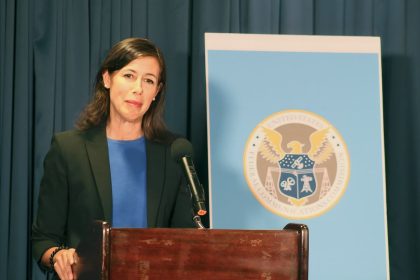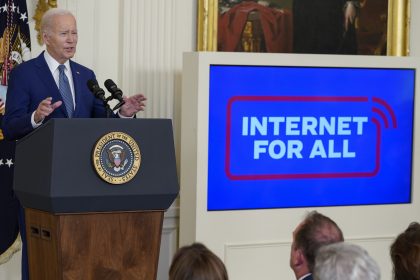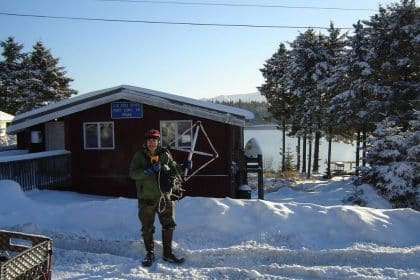FCC Changes Rules to Help Expand Wireless in Rural America

WASHINGTON — The Federal Communications Commission voted unanimously Thursday on a rule change that will make it easier for smaller cellphone carriers and tribal nations to expand their wireless networks in rural areas where there is no cell service.
The new Enhanced Competition Incentive Program will incentivize companies with unused spectrum licenses to partner with smaller organizations that will use the spectrum available to provide wireless service.
“Specifically, an existing wireless provider that uses its license to create new opportunities for smaller carriers or tribal nations — by partitioning, disaggregating or leasing the spectrum — will see gain and not just loss for doing so,” said Chairwoman Jessica Rosenworcel at Thursday’s monthly meeting.
“[W]e will reward them with longer license terms, an extension on buildout obligations and more flexible construction requirements,” said continued. “It’s a way to make sure spectrum in rural areas actually goes to those most likely to use it.”
The new rule was years in the making because of the bipartisan MOBILE NOW Act, which was signed into law in 2018.
FCC Commissioner Geoffrey Starks was enthusiastic about the rule change and its potential to help tribal nations. During Thursday’s meeting, he spoke about his time meeting people from the Red Cliff Tribal Nation, “which couldn’t attract competitive buildout by a local licensee and wanted to build its own wireless network — but couldn’t find a way to access the spectrum.”
This new rule change will allow tribes to work with the larger spectrum license holders in their areas to access the airwaves and create their own cellphone network, he said.
Commissioner Brendan Carr concurred. “They often just want a shot,” he said.
This rule change is one part of the commission’s goal to expand broadband access to everyone in the country, Rosenworcel explained.
The commission also is using this rule change as a way to expand 5G service and is seeking comments on how to adopt this rule for other rural uses, including precision agriculture, she said.
Looking into expanded 5G will ultimately help move America towards a greener economy, Starks said.
“In fact, a recent study estimated that 5G use cases could net us 20% of the total reduction needed for the United States to reach its 2030 emissions targets. Much of that reduction would stem from wireless deployments that enable smart agriculture, smart manufacturing, smart infrastructure and smart cities, among other efficiency-driven applications,” he said.
Madeline can be reached at [email protected] and @MadelineHughes






















